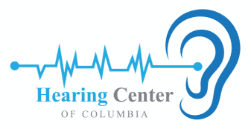Can Hearing Loss Be Reversed? When It’s Possible and When It’s Not
Noticing changes in your hearing often raises the question of whether it

By: admin | December 23, 2024
When unexpected events happen, being prepared helps us handle them with confidence. For hearing aid users, this preparation takes on extra importance since we rely on our devices to stay connected and aware of what’s happening around us. Whether it’s a power outage during a storm or other emergency situations, having a plan for your hearing aids can help you stay comfortable and connected.
Just like keeping flashlights and extra batteries ready for storms, thinking ahead about your hearing aid needs makes good sense. You want to make sure you can keep your devices working when regular routines are disrupted – from charging rechargeable hearing aids during power outages to having enough batteries on hand when stores might be closed.
By taking some simple steps now, you can feel more secure knowing that you’ll be able to hear clearly even when unexpected situations arise. Having a plan for your hearing aids is just another part of being ready for whatever comes your way.
Hearing aids are powered in two main ways: disposable batteries or rechargeable systems. Traditional hearing aids often use disposable zinc-air batteries, which are small, lightweight and activated by exposure to air. These batteries typically come in standard sizes, with the size you need depending on your hearing aid model. They usually last anywhere from three to 10 days, depending on the battery size, your hearing aid’s power usage and how often you use features like streaming or noise cancellation. While disposable batteries are widely available and easy to replace, keeping a supply on hand is essential to avoid interruptions in your hearing aid’s functionality.
Rechargeable hearing aids, on the other hand, use built-in lithium-ion batteries that are charged using a docking station. These models are becoming increasingly popular due to their convenience and eco-friendliness. A full charge typically provides a full day of use, even with advanced features like Bluetooth streaming or noise reduction. Rechargeable hearing aids are a great option for people who prefer not to handle tiny disposable batteries or who want to reduce waste. Charging is simple – most devices require you to place them in their charging dock overnight, ensuring they’re ready to go the next day. However, it’s important to remember that rechargeable batteries are built-in and may eventually need to be replaced by a hearing instrument specialist, usually after a few years of regular use.
Proper storage of disposable batteries is essential for safety and maintaining their performance over time. To begin with, always keep batteries in their original packaging until you’re ready to use them. This prevents accidental short circuits caused by the terminals coming into contact with metallic objects. If you must store loose batteries, place them in a non-conductive container where the terminals won’t touch each other or other metal items. Additionally, store batteries in a cool, dry place away from direct sunlight and extreme temperatures. Excessive heat can cause leaks or even explosions, while cold conditions can reduce their performance.
It’s equally important to ensure that expired or damaged batteries are separated from new ones. Mixing old and new batteries can lead to leaks or inconsistent performance when used together in devices. Label your batteries with their purchase dates if they don’t already have expiration dates printed on them, making it easier to track their usability. Lastly, keep batteries out of reach of children and pets to avoid accidental ingestion or other hazards. Proper storage not only prolongs the life of your batteries but also minimizes risks to your devices and household.
Properly setting up a charging station for rechargeable hearing aids is crucial for ensuring their reliability and longevity. Choose a stable, clean surface in a well-ventilated area, away from direct sunlight, moisture or extreme temperatures. Avoid placing the charging station near electronic devices that could emit interference. Make it a habit to charge your hearing aids at the same time every day, ideally overnight, so they’re ready for use in the morning. Always use the charger provided by the manufacturer, as third-party chargers may not deliver the correct voltage and could damage the device.
It’s also wise to prepare backup power sources to ensure your hearing aids remain functional during power outages or while traveling. Consider investing in a portable power bank or solar-powered charger compatible with your device. If you frequently travel, pack a backup charger and check the voltage compatibility of outlets at your destination. Additionally, maintain a set of disposable hearing aid batteries, if your model supports them, as an emergency backup. Organize your charging station and power sources to keep cords untangled and accessories easily accessible. With a reliable setup, you can ensure your hearing aids stay charged and ready for daily use.
Having working hearing aids during an emergency is crucial for ensuring that individuals can respond appropriately to critical situations. Hearing is a key sense for alerting people to danger, whether it’s an emergency siren, a fire alarm or someone calling for help. Without functioning hearing aids, individuals with hearing loss may miss important auditory cues that could delay their response to urgent situations, putting them at greater risk. In addition, hearing aids help improve communication, which is vital when coordinating with emergency responders, family members or neighbors during a crisis.
Hearing aids support emotional well-being during emergencies by enabling individuals to stay connected with others. In stressful situations, being able to hear and participate in conversations provides reassurance and helps reduce feelings of isolation. Hearing aids allow for clear communication, which is essential for receiving instructions, understanding evacuation routes or learning about changes in safety protocols. Whether in a natural disaster, medical emergency or any other critical event, having working hearing aids ensures that individuals are not only physically safe but also mentally prepared and engaged in the response efforts.
Power outages can create challenges, especially for those who rely on rechargeable hearing aids. Having a plan in place can mitigate these effects. Spare batteries or a battery-powered charging case can be lifesavers during prolonged power outages. It’s all about being prepared and understanding the potential hurdles that could affect your hearing aids’ functionality.
When a power disruption occurs, knowing how to extend your hearing aid batteries’ lifespan becomes crucial. Turning off your hearing aids when they’re not in use is a simple yet often overlooked step. Proper storage of spare batteries in a cool, dry place can also extend their lifespan. These strategies can help ensure your hearing aids remain functional for longer periods during power disruptions, allowing you to stay connected with your surroundings and maintain communication when it matters most.
Solar-powered chargers are an innovative solution that can keep your hearing aids powered even during a power outage. Another viable option is hand-cranked chargers. While they require some manual effort, these chargers can be extremely useful in situations where there’s no power or sunlight available. With these alternative energy solutions at your disposal, you can ensure that your hearing aids stay functional no matter what the circumstances may be.
In times of crisis, it’s important to protect your hearing aids from damage. Store them in a dry, secure place away from any potential hazards. Always remove your hearing aids before cleaning or sanitizing your hands with alcohol-based products to prevent accidental damage.
Start by including extra charging accessories, like a portable charger or power bank that is compatible with your hearing aid’s charging station. It’s important to have a backup charger in case of power outages or when traveling to areas where electrical outlets may not be easily accessible. If your hearing aids also support disposable batteries, make sure to pack a sufficient supply to last through potential emergencies.
In addition to power sources, include cleaning supplies to maintain your hearing aids in good working condition during an emergency. Moisture can be a concern, so add desiccant packets or a hearing aid drying kit to protect your devices from humidity or water exposure. Consider storing your hearing aids and accessories in a waterproof, durable case to protect them from physical damage and environmental factors. Lastly, make sure to include any necessary documentation, like your hearing aid model and instructions, in case you need to explain your needs to emergency responders or healthcare providers.
During an emergency, individuals with hearing loss may face challenges in staying informed and communicating effectively. While hearing aids are important, there are additional ways to communicate and ensure safety when verbal communication isn’t sufficient. One of the most effective strategies is using visual cues, like flashlights or other light sources. In low-light situations, a flashlight can help illuminate a person’s face, allowing others to lip-read and better understand important messages. Lip-reading can be especially crucial if alarms or sirens are inaudible, as visual communication becomes a primary tool for receiving instructions and warnings.
In addition to light sources, other methods of communication include written messages, text and visual alerts. Carrying a notepad or a dry-erase board can be useful for exchanging information quickly in an emergency, allowing for clear communication when verbal speech isn’t possible. Smartphones and tablets can also play a key role, as they allow for text-based communication through messaging apps or emergency alert systems. Many people with hearing loss also use vibrating alerts or flashing lights on their devices to be notified of emergency situations. These strategies ensure that individuals with hearing loss can stay informed, communicate with others and make timely decisions during critical events.
Whether it’s helping you understand different power sources for your hearing aids, offering tips on how to prolong battery life during a power disruption or advising on alternative energy solutions – the team at Hearing Center of Columbia is here to assist. We understand the importance of being prepared and we’re committed to helping you formulate an effective emergency readiness plan tailored specifically for your hearing aid needs.
Don’t wait until an emergency strikes. Ensure that you’re equipped with the knowledge and resources needed to keep your hearing aids working when it matters most. Call us at (931) 548-1166 or visit one of our Columbia, TN office for more information.

Noticing changes in your hearing often raises the question of whether it
By: admin | January 19, 2026

Exercise benefits your body in ways that extend beyond muscle strength and
By: admin | November 18, 2025

When hearing difficulties begin, it can feel challenging to adjust to the
By: admin | September 24, 2025
